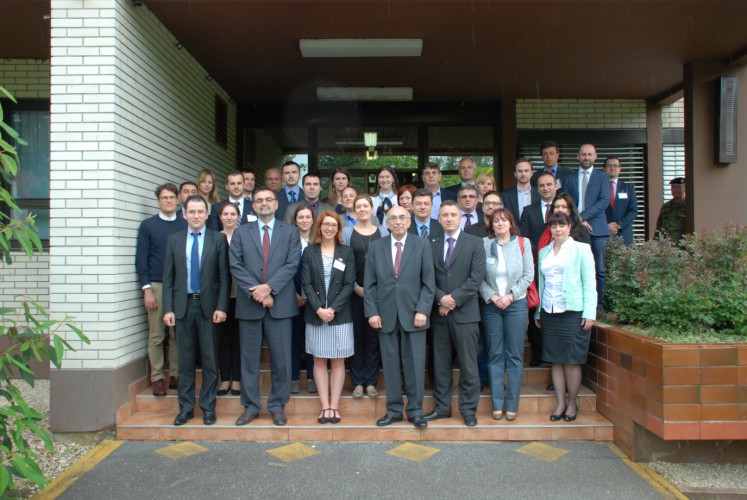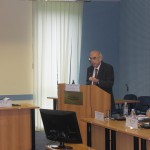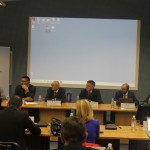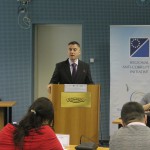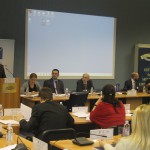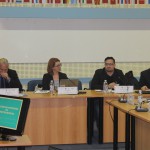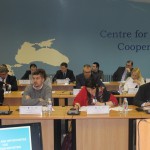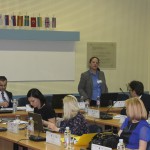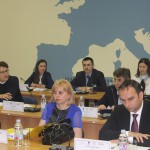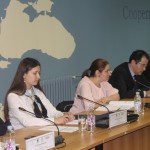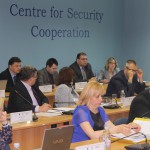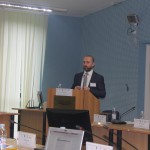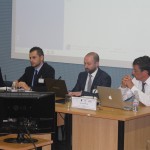Workshop on Corruption Reporting and Whistleblower Protection – May 10-11 2016 – Rakitje, Croatia
Workshop on Corruption Reporting and Whistleblower Protection, organized by RAI – Regional Anti-Corruption Initiative in cooperation with RACVIAC – Centre for Security who hosted the event, ReSPA – Regional School for Public Administration, and RCC – Regional Cooperation Council, took place on 10-11 May 2016 in Rakitje, Croatia.
The objective of this Workshop was to increase capacity of relevant public institutions about protection of whistleblowers, as well as to increase awareness about needed legal solutions in South East Europe. The event was attended by representatives of institutions from South Eastern Europe, in charge of implementation of whistleblowing policies at respective national levels. Participants had an opportunity to discuss the most relevant aspects of whistleblowing and to gain better understanding of the specific elements in corruption reporting and whistleblower protection, such as reporting channels, identity protection, confidentiality, protection mechanisms, etc. Sharing of experiences and presentation of practical cases enabled better understanding of existing practices and mechanisms on national levels.
Implementation of international instruments and standards in this field was also in the focus of discussion among participants.
The workshop resulted in outlining the most demanding common challenges in the field of whistleblower protection, but also in identifying the future steps in addressing those challenges and needs from a regional perspective.
For more details, please see the workshop Agenda and List of Participants.
Day 1
The workshop was opened by His Excellency Ambassador Haydar Berk, Director of RACVIAC, who welcomed all participants and expressed appreciation to RAI, RCC and ReSPA for cooperation in organizing the event, as well as to other organizations which contributed to the event, particularly to UNODC, OECD and Blueprint for Free Speech. He also emphasized the importance of whistleblowing as a strong tool and mechanism in the fight against corruption and highlighted objectives of the workshop. Regional cooperation and development of synergies have been identified as significantly important in this respect.
Mr. Davor Dubravica, RAI Chairperson, expressed gratitude to RACVIAC, ReSPA and RCC for collaboration in organizing the workshop. He pointed out the importance of whistleblower protection, and expressed RAI commitment to support national authorities in capacity building and further work in this field. Implementation of laws on whistleblower protection is crucial in the overall anti-corruption efforts.
Mr. Dragan Djuric, Programme Manager from ReSPA expressed pleasure to cooperate with partners in organizing the workshop. He underlined that the workshop is a good opportunity to share experiences and best practices, which would lead to progress in anti-corruption field.
After opening remarks, all participants introduced themselves and expressed their workshop expectations.
First panel of the workshop was about Key legal principles for corruption reporting, and it was led by Mr. John Devitt, Anti-Corruption Expert from Transparency International Ireland.
Mr. Devitt stressed that challenges are universal and not only regional and pointed out that whistleblowing plays an important role in anti-corruption efforts. He also emphasized the importance of whistleblowing promotion and advocacy. Several important aspects of corruption whistleblowing were touched upon, such as “good faith” principle, potential risks for whistleblowers, unreliable whistleblowers, opportunities and challenges in corruption reporting. Mr. Devitt denoted that focus should be on information received by whistleblowers, rather than on the person. He also emphasized role of the CSOs in whistleblower protection.
Ms. Constanze Von Soehnen, UNODC Expert, led the presentation and discussion on UNCAC Requirements and Key Review findings. She indicated how legislation is important to understand the difference on whistleblower protection and protection of formal witnesses in the criminal proceeding. Ms. Von Soehnen underlined that countries of the region finalized 1st cycle of UNCAC review. Almost all countries were recommended to strengthen the whistleblower protection systems, while only one country requested technical assistance.
She informed participants about the UNODC Resource Guide on Good practices in the Protection of Reporting Persons, available HERE.
During the next session, led by Mr. Tomislav Curic, Anti-corruption Expert from RAI, national representatives shared their experiences, best practices and lessons learned. They also informed on the most recent developments on national level and presented practical cases on whistleblower protection. It was concluded that all countries have made a progress in the field of whistleblower protection. However, there is still a lot of potential for improvement and work to be done, particularly in terms of implementation of national legislation.
Day 2
The session on Improving Implementation and Enforcement of Whistleblower Protection was opened by Mr. Mark Worth, Blueprint for Free Speech. Mr. Worth drew attention to the case of Tuzla Kvarc in Bosnia and Herzegovina that confirmed the need for stronger legislation to protect whistleblowers in private sector. He informed the audience about Southeast Europe Coalition on Whistleblower Protection, its roles and how the Coalition can support governments in their efforts in protection of reporting persons
Ms. Liz Owen, OECD Expert, underlined two main instruments: Recommendation on Improving Ethical Conduct in the Public Sector and Anti-bribery Recommendation. She emphasized the fact that 59% of OECD countries guarantee anonymity to whistleblowers, and stressed some important points like education and awareness in raising, implementation and tone from the top.
Dr. Stelios Andreadakis, from University of Leicester, shared the results of the study on whistleblower protection in the USA and UK. He elaborated on money rewards for whistleblowers in private sector in the USA, which ensures anonymity, better encouragement and less retaliation. He also provided some ideas and suggestions on how to improve whistleblower protection in South East Europe.
During the final session of the Workshop, led by Mr. Tilman Hoppe, Anti-corruption Expert, participants had an opportunity to work in groups and discuss the most challenging and practical topics regarding whistleblowing, such as anti-retaliation measures, features of good legislation, working with whistleblowers in practice, and activities that could enhance whistleblower protection in the region. Each group presented its findings and recommendations for the future activities.
In the closing statements, Mr. Dragan Djuric expressed gratitude to everyone and pointed out that the workshop has broaden the picture of further work and it will help to improve system of anti-corruption policies.
Mr. Davor Dubravica expressed appreciation to all participants for attending the workshop and for sharing experiences. He stressed out commitment of RAI to work in the field of whistleblower protection and to support the SEE Coalition. He reiterated the importance of joint cooperation with other regional organizations, particularly with RACVIAC, ReSPA and RCC.
At the end of the workshop, Ambassador Haydar Berk pointed out the importance of whistleblower protection, which is one of the biggest challenges in SEE. He also underlined that the workshop was very successful and it will be helpful for participants in terms of how to maximize benefits of whistleblowing. Mr. Berk expressed readiness for further collaboration with regional organizations in this field.
Photo Gallery

